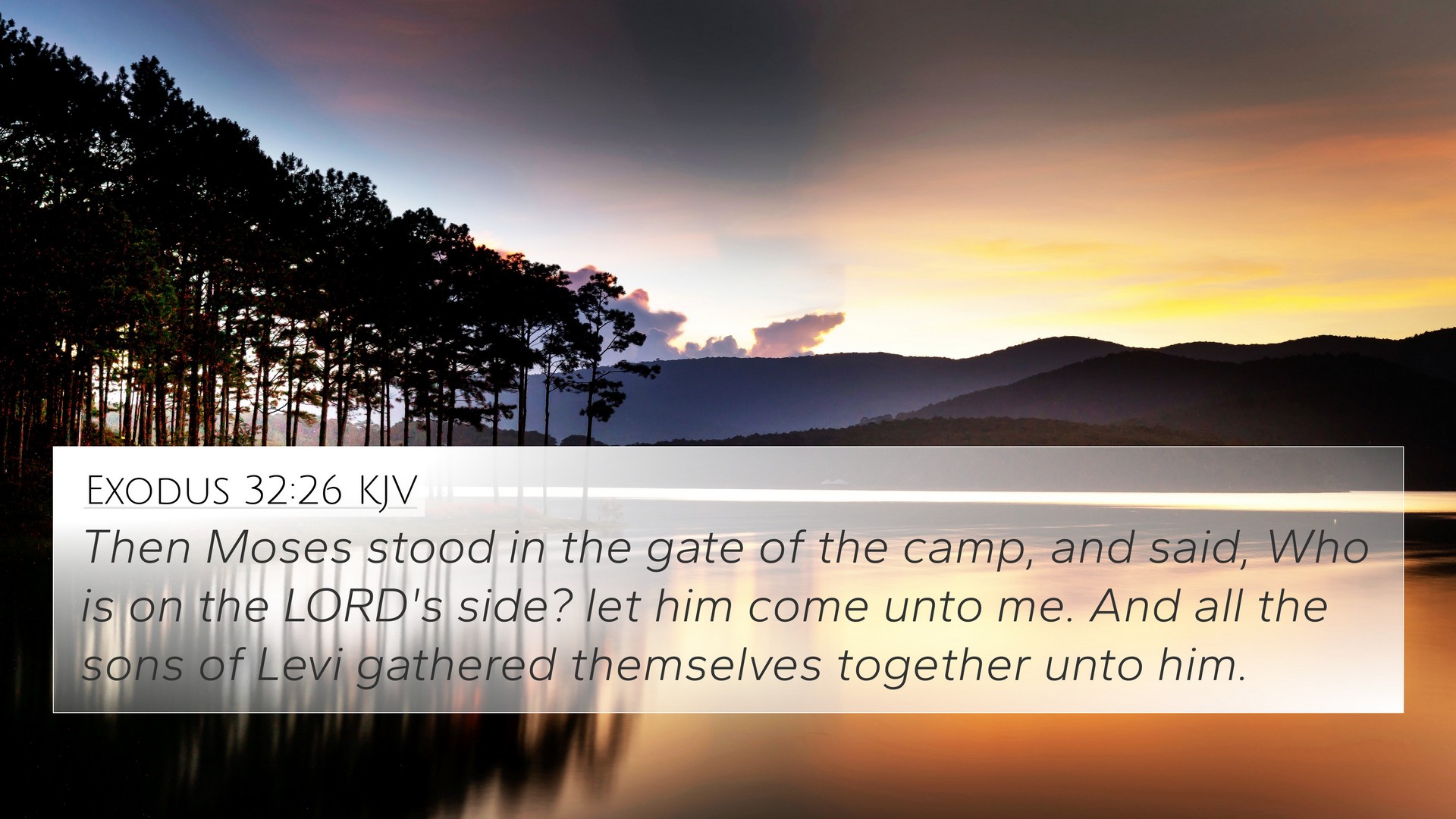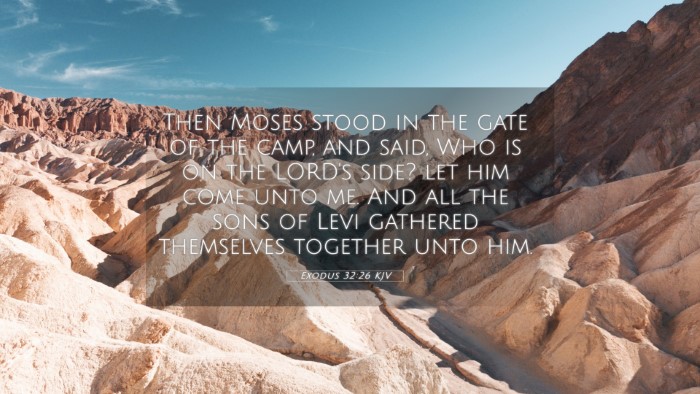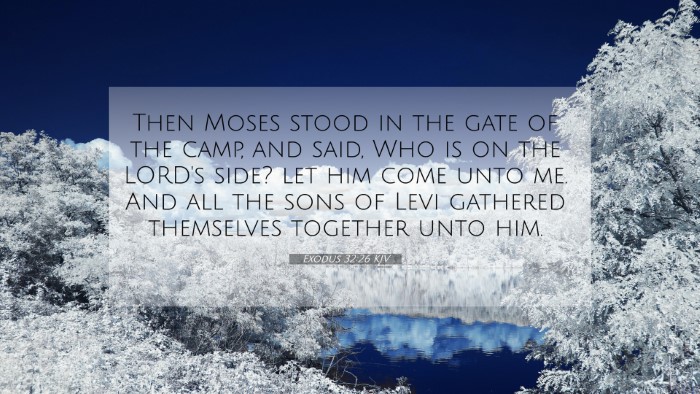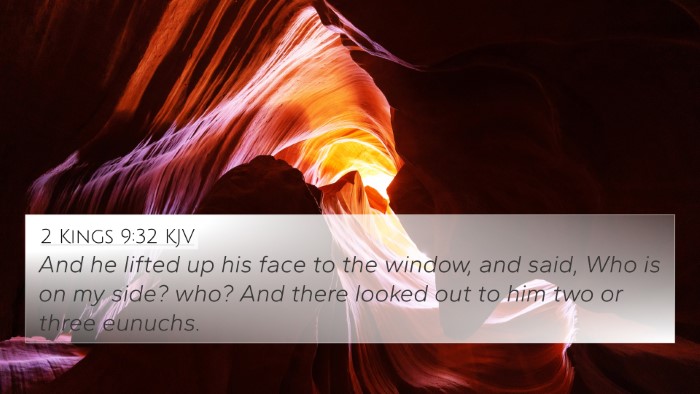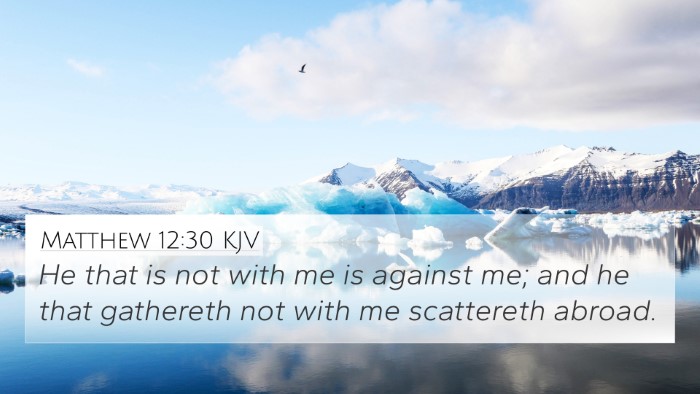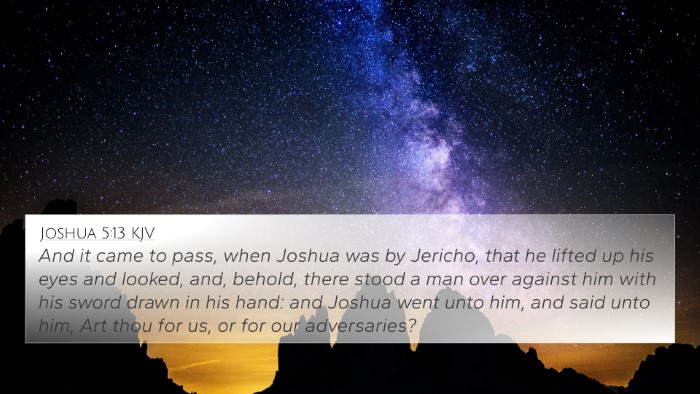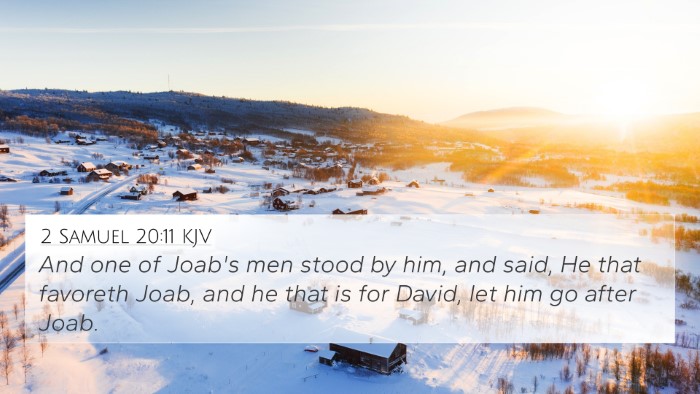Exodus 32:26 Explained
Verse Context: Exodus 32:26 states, "Then Moses stood in the gate of the camp, and said, Who is on the Lord's side? let him come unto me. And all the sons of Levi gathered themselves together unto him." This verse occurs during a pivotal moment when the Israelites, having made a golden calf, turned away from God, prompting Moses to call the faithful back to loyalty.
Meaning and Interpretation
The verse serves as a clarion call for allegiance to the Lord amidst rebellion and idolatry. Each of the commentators brings out important insights to understand the gravity of the situation and Moses’ leadership.
Insights from Public Domain Commentaries
- Matthew Henry: He emphasizes Moses’ role as a mediator between God and the people. By asking, "Who is on the Lord's side?" he signifies a moment of decision, challenging individuals to show their allegiance. Henry highlights the strength found in collective commitment to God, illustrated by the Levites’ immediate response to Moses.
- Albert Barnes: Barnes focuses on the idea of separation from sin. The call to the Levites symbolizes the need to distance oneself from corrupt influences. Barnes notes that Moses’ call is thematic of spiritual commitment, reflecting a deeper necessity for holiness within the community.
- Adam Clarke: Clarke draws attention to the geographical and cultural context of Moses’ proclamation. He notes the courage required to stand with Moses against the prevailing idolatry, suggesting that such stands for righteousness often come at a personal cost. Clarke further explores the implications of the Levites’ actions as foundational for understanding priesthood and service to God.
Cross-References for Deeper Understanding
- Joshua 24:15: "And if it seem evil unto you to serve the Lord, choose you this day whom ye will serve..." - reinforcing the concept of choosing sides.
- 1 Kings 18:21: "And Elijah came unto all the people, and said, How long halt ye between two opinions? ... if the Lord be God, follow him; but if Baal, then follow him." - another call to loyalty to God.
- Matthew 12:30: "He that is not with me is against me; and he that gathereth not with me scattereth abroad." - echoing the theme of allegiance found in Exodus 32:26.
- Revelation 3:15-16: "I know thy works, that thou art neither cold nor hot: I would thou wert cold or hot." - a New Testament perspective on being fully committed.
- Romans 12:1: "I beseech you therefore, brethren, by the mercies of God, that ye present your bodies a living sacrifice, holy, acceptable unto God..." - linking the idea of commitment and sacrifice.
- Matthew 5:13-16: "Ye are the salt of the earth: but if the salt have lost his savour, wherewith shall it be salted?" - emphasizing the influence of God's people in a corrupt world.
- 2 Corinthians 6:17: "Wherefore come out from among them, and be ye separate, saith the Lord..." - reinforcing the call to separation from sin.
Conclusion and Thematic Connections
Exodus 32:26 resonates as a profound call to fidelity to God amidst the turmoil of peer pressure and societal decay. By aligning the insights of these commentators, we recognize that this verse is not merely historical but serves as a timeless challenge to believers. It prompts an examination of personal and corporate faithfulness while considering the broader narrative of scripture and its inherent cross-referencing.
Further Study Tools and Resources
For those looking to delve deeper into cross-references and connections between Bible verses, various tools can assist in this process:
- Bible Concordance: A valuable resource that indexes key words and phrases.
- Bible Cross-Reference Guide: These guides help trace thematic and narrative connections.
- Cross-Referencing Bible Study: Methods to approach scripture comparisons effectively.
- Bible Chain References: These show how different themes are interconnected throughout scripture.
By utilizing these resources and acknowledging the connections between biblical texts, believers can grow in their understanding and application of scripture, fostering a deeper relationship with God.
